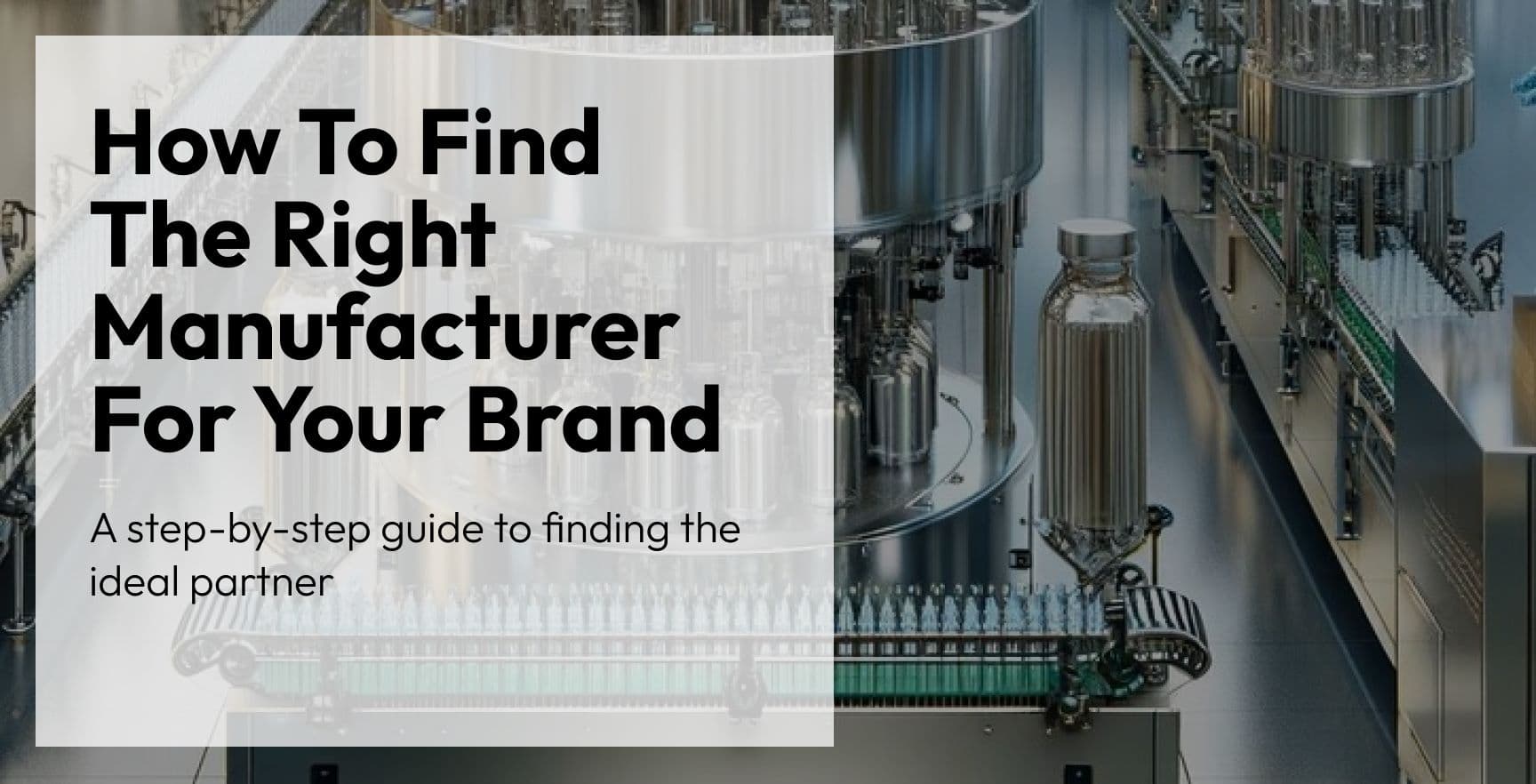About to launch your organic skincare, natural food supplements or other innovative consumer product line in Europe? While you probably feel excited, at the same time the thought of finding the right manufacturing partner might leave you feeling lost. Don’t worry! This guide tackles the intricacies of navigating the European landscape, specifically for brands like yours. We'll help you find the perfect manufacturing partner: someone who aligns with your product's needs, understands diverse consumer preferences, and shares your brand's values.
Let’s get straight to it.
Step 1: Defining Your Manufacturing Requirements
Before you even start looking for a manufacturer, it's important to have a crystal-clear understanding of what you need.
Start by asking yourself some key questions:
What level of production capacity do you need now, and what might you need in the future as your brand grows?
What specific qualities must your product have to stand out in the skincare, supplement, CBD, or any other market?
Are there particular materials or production technologies that are essential for your product?
And importantly, what quality standards must be met to ensure your product not only resonates with customers but also upholds your brand's reputation?
But it’s not just about the physical product. It’s equally important to align these manufacturing needs with your brand values and goals. If sustainability is at the heart of your brand, seek manufacturers with green practices. If ethical sourcing is a cornerstone of your brand ethos, your manufacturer should share this commitment. This alignment is key – your manufacturing choices should reflect what your brand stands for.
In short, defining your manufacturing requirements is a comprehensive process. It's about knowing the intricacies of your product, understanding your market position, and staying true to your brand’s core values.
Step 2: Researching Potential Manufacturers
Once you have a clear picture of your manufacturing requirements, it’s time to dive into the research phase. This is where you start identifying potential manufacturers who can meet your specific needs. Here’s how you can approach this step:
Utilizing Online Directories and Resources
Begin with online research. Utilize directories and resources that list manufacturers – like our comprehensive European Manufacturer Directory . These platforms can provide a wealth of information, allowing you to filter and find manufacturers based on your specific criteria such as location, capability, and experience in your product category.
Attending Trade Shows and Industry Events
Participating in trade shows and industry events is another effective way to find potential manufacturing partners. These events offer a unique opportunity to meet manufacturers face-to-face, get a feel for their operations, and ask direct questions about their processes and capabilities.
Networking within Industry Circles
Don't underestimate the power of networking. Engage with industry peers, join relevant online forums, and participate in industry groups. Often, the best recommendations come through word-of-mouth from those who have had firsthand experience with manufacturers.
The research phase is about gathering options and understanding the landscape. Take your time to explore different avenues and compile a list of potential manufacturers that seem like a good fit. This list will be the foundation for the next steps in your journey to finding the perfect manufacturing partner for your brand.
Step 3: Evaluating Manufacturer Capabilities & Key Criteria
With a list of potential manufacturers at hand, it’s time to evaluate their capabilities against key criteria to ensure they align with your specific needs. This step helps you narrow down your choices, bringing you closer to the ideal match for your brand.
Production Capacity and MOQ (Minimum Order Quantity)
Evaluate each manufacturer's ability to meet your production demands. Assess if their minimum order quantity aligns with your requirements and whether they can scale up in response to your business growth.
Quality Assurance and Standards Compliance
Quality is paramount. Ensure the manufacturer has stringent quality control processes and complies with necessary European standards, especially for products like skincare and supplements that have strict regulations.
Lead Time
Understanding the lead time from production to delivery is critical. Ensure the manufacturer can meet your timelines, especially if you have seasonal demands or launch deadlines.
Experience and Past Work
Evaluate their experience, especially with products similar to yours. Review their portfolio and ask for case studies to gauge their expertise in your specific product category.
Additional Services Offered
Beyond manufacturing, check if they offer additional services like design support, regulatory compliance checks, or logistics management, that you might need. These services can be helpful, particularly if you're a growing brand needing extra support.
Alignment with Brand Values
The manufacturer should reflect your brand’s values, such as sustainability and ethical practices. A manufacturer that mirrors your ethos will contribute positively to your brand's narrative.
Use the information gathered in this step to refine your list of potential manufacturers. The goal is to end up with a few top candidates that not only have the capability to produce your product but also share your brand’s values and vision.
Step 4: Initiating Contact and Conducting Due Diligence
You've narrowed it down! Now, let's get to know the finalists better. Chat with them, ask questions, and make sure they tick all your boxes.
Initial Contact and Communication:
Reach out with a well-prepared introduction of your brand and product vision.
Clearly communicate your requirements, expectations, and timelines.
Assess responsiveness, interest, and willingness to collaborate.
Discuss production details, quality control measures, and communication preferences.
Pay attention to communication style and cultural fit during interactions.
Due Diligence:
If possible, conduct site visits to observe operations and working conditions.
Request samples or trial runs to evaluate actual product quality.
Contact references for firsthand accounts of reliability and performance.
Be vigilant for red flags like inconsistent communication, lack of transparency, or negative feedback.
Don’t forget, this is about finding a long-term partner. Choose someone you trust, align with, and who consistently demonstrates their ability to meet your needs.
Alright, that’s it!
The secret to finding your perfect European manufacturing partner: Be crystal clear on your expectations, do your due diligence, and build trust. It might seem like a long journey, but there are a few shortcuts you can take, like our European Manufacturer Directory which saves you time on researching and evaluating potential manufacturers. Good luck!


